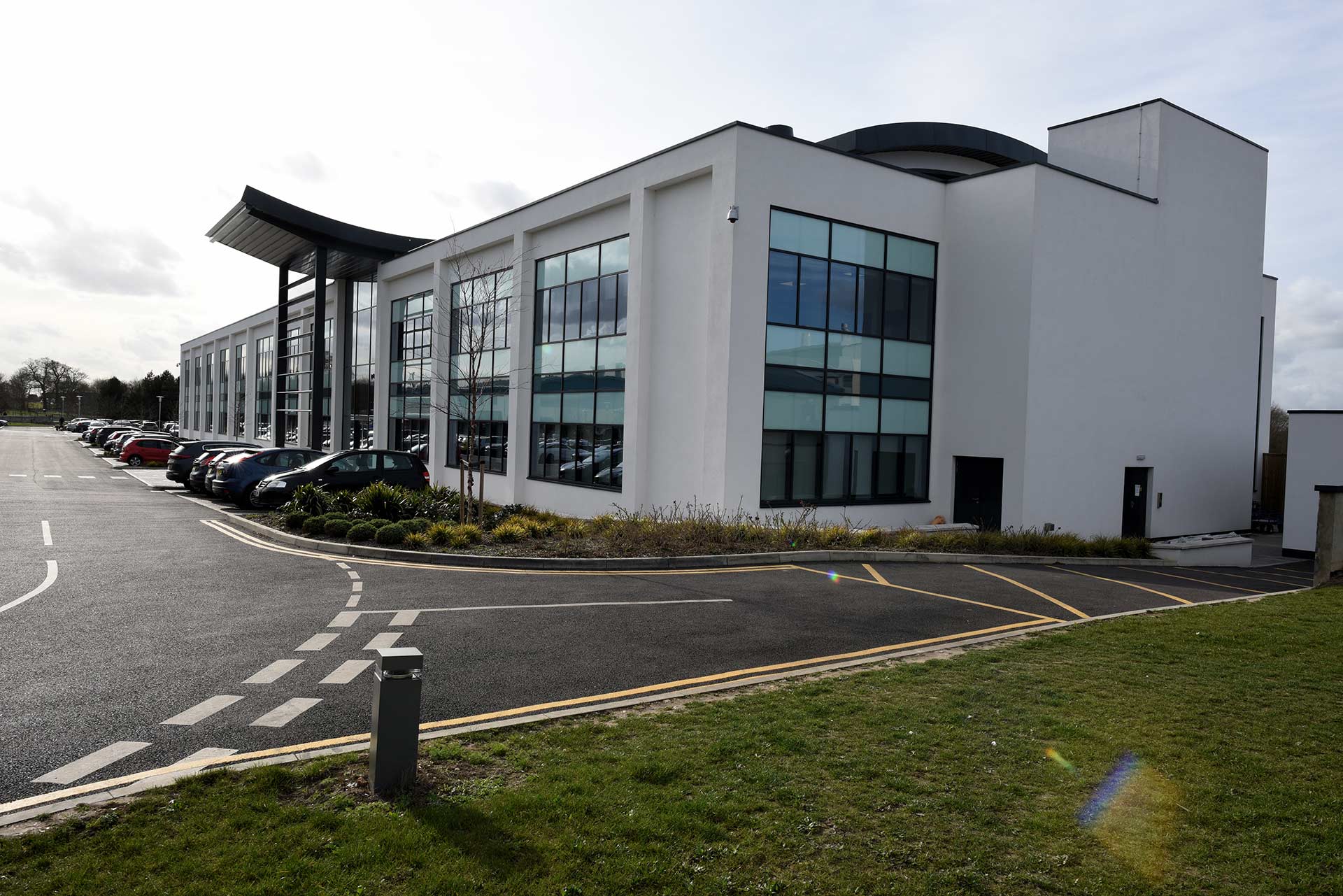A novel class of versatile, chemically synthesized medicines to improve treatment outcomes for patients in oncology and beyond.

An entirely new class of therapies
Bicycle is pioneering the development of bicyclic peptides, or Bicycles® – a novel class of versatile, chemically synthesized medicines. Bicycles are fully synthetic short peptides constrained to form two loops which stabilize their structural geometry. This constraint is designed to confer high affinity and selectivity, and the relatively large surface area presented by the molecule allows targets to be drugged that have historically been intractable to non-biological approaches. Bicycles represent a unique therapeutic class, combining the pharmacological properties normally associated with a biologic with the manufacturing and pharmacokinetic advantages of a small molecule.
Bicycle Therapeutics was founded in 2009 to convert innovative Bicycles into transformative medicines for life-altering diseases.
Bicycle’s proprietary phage display screening platform is based on novel science first conceived in the laboratory of Sir Greg Winter, winner of the Nobel Prize in Chemistry in 2018 for pioneering work in phage display. Phage can be harnessed to identify Bicycles by splicing DNA into the phage genome so that linear peptides encoding Bicycles are presented on the phage surface. As a result, Bicycle can rapidly select phage that bind to a chosen biological target and use evolution-driven, informed selection to derive optimum molecules to develop novel therapies. A transatlantic company, Bicycle is headquartered in the vibrant life science cluster of Cambridge, with key oncology functions and members of the leadership team located in the biotech hub of Boston, Mass., U.S.A.

Our location in Cambridge provides us with access to leading scientists and clinical sites, and we have collaborations with several esteemed laboratories in the area. This has enabled us to make significant advancements across our wholly-owned oncology pipeline, as well as our partnered assets, all of which are based on our core Bicycle technology discovered in Cambridge.
Nicholas Keen, Ph.D., Chief Scientific Officer
Bicycle has built out a robust portfolio of assets since its founding, including its wholly owned, next-generation Bicycle Toxin Conjugates™ (BTCs) targeting oncological indications and its novel, fully synthetic Bicycle tumor-targeted immune cell agonists (TICAs™).
The company’s lead BTC, BT1718, is progressing in a Cancer Research UK sponsored Phase IIa clinical trial across multiple clinical trial sites, with one of the lead sites at the University of Cambridge. BT5528 and BT8009 are also quickly progressing through respective stages of clinical development, with encouraging early data thus far demonstrating activity in the clinic In the immuno-oncology pipeline, Bicycle expects BT7480, a novel TICA for which preclinical data has indicated a potential unique anti-tumor killing mechanism, to enter the clinic in 2021, and we have identified new TICAs targeting natural killer (NK) cells, which we are moving into lead optimization.
Leveraging the Potential of Bicycles Beyond Oncology
To leverage the broad applicability of Bicycles, the company has entered into several collaborations outside its core internal focus in oncology. These strategic collaborations are based on the ability of Bicycles to address a wide variety of targets. Through collaborations with AstraZeneca, Oxurion, and the Dementia Discovery Fund, Bicycle works with companies that have deep therapeutic expertise outside of oncology to enable us to more efficiently develop novel medicines for patients.
bicycletherapeutics.comIn addition, Bicycle has used its proprietary platform to investigate the utility of its technology to address antimicrobial resistance, a growing healthcare problem, with no new class of antibiotics identified for over 50 years. Through non-dilutive funding from Innovate UK, Bicycle has been able to execute on research in this area. Bicycle also initiated research on SARS-CoV-2 early in 2020 to rapidly find solutions to the pandemic by identifying Bicycles from its unique platform to act as neutralizing inhibitors of viral entry, supported by funding from an award from UK Research & Innovation.


